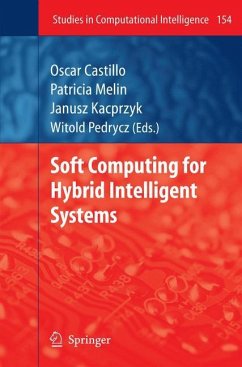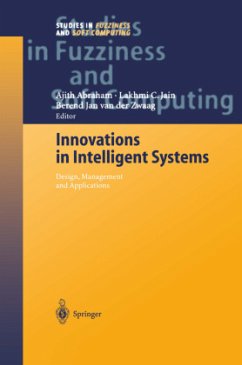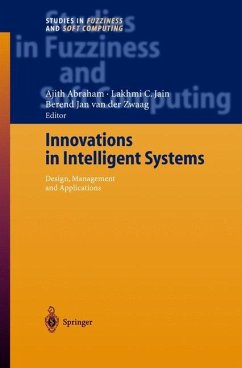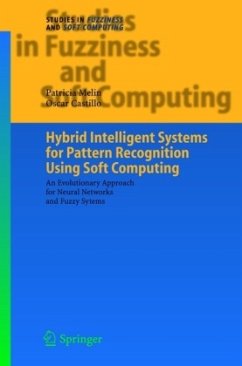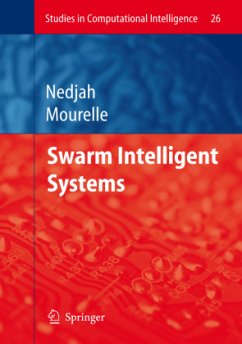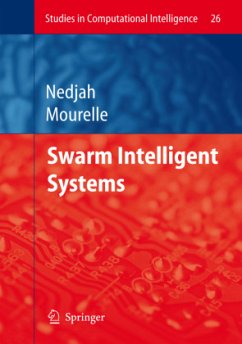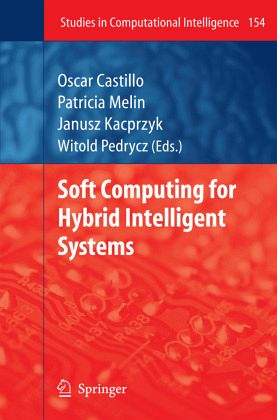
Soft Computing for Hybrid Intelligent Systems
Versandkostenfrei!
Versandfertig in 6-10 Tagen
113,99 €
inkl. MwSt.

PAYBACK Punkte
57 °P sammeln!
We describe in this book, new methods and applications of hybrid intelligent systems using soft computing techniques. Soft Computing (SC) consists of several intelligent computing paradigms, including fuzzy logic, neural networks, and evolutionary al- rithms, which can be used to produce powerful hybrid intelligent systems. The book is organized in five main parts, which contain a group of papers around a similar subject. The first part consists of papers with the main theme of intelligent control, which are basically papers that use hybrid systems to solve particular problems of control. The ...
We describe in this book, new methods and applications of hybrid intelligent systems using soft computing techniques. Soft Computing (SC) consists of several intelligent computing paradigms, including fuzzy logic, neural networks, and evolutionary al- rithms, which can be used to produce powerful hybrid intelligent systems. The book is organized in five main parts, which contain a group of papers around a similar subject. The first part consists of papers with the main theme of intelligent control, which are basically papers that use hybrid systems to solve particular problems of control. The second part contains papers with the main theme of pattern recognition, which are basically papers using soft computing techniques for achieving pattern recognition in different applications. The third part contains papers with the themes of intelligent agents and social systems, which are papers that apply the ideas of agents and social behavior to solve real-world problems. The fourth partcontains papers that deal with the hardware implementation of intelligent systems for solving particular problems. The fifth part contains papers that deal with modeling, simulation and optimization for real-world applications.



